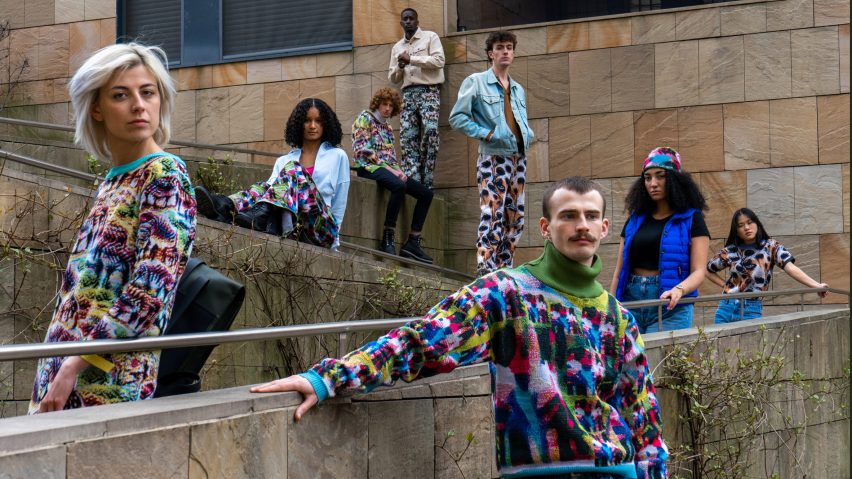Italian fashion start-up Cap_able has launched a collection of knitted clothing that protects the wearer's biometric data without the need to cover their face.
Named Manifesto Collection, the clothing features various patterns developed by artificial intelligence (AI) algorithms to shield the wearer's facial identity and instead identify them as animals.
Cap_able designed the clothing with patterns – known as adversarial patches – to deceive facial recognition software in real-time.
The garments have been tested with YOLO, which is the fastest real-time object detection system, according to Cap_able.
Wearers are either undetectable by the software or are identified as animals whose print is embedded into the adversarial patch.
"People who wear Cap_able's garments are not recognized as such by the software [YOLO], which instead identifies dogs, zebras, or giraffes within the fabric," said the brand.
Cap_able's founders, Rachele Didero and Federica Busani developed the collection after nine months of research and testing various images, algorithms, knitting machines and materials.
Didero created a system to converting digital adversarial patches onto a 3D knitted textile using a single yarn in order to control the knit and ensure it kept the patch's adversarial properties.
"I wanted to obtain a knitted textile because, in knitwear, I can control the material of the single yarn and work on the final texture," Didero told Dezeen.
"To obtain a knitted textile, I had to work on specific computerised knitting machines with a certain gauge and yarns."
The collection includes jumpers, t-shirts, trousers and dresses that are knitted from 100 per cent Egyptian cotton quality by Filmar, a brand that adheres to the Better Cotton Initiative (BCI), according to Cap_able.
According to Didero, the Manifesto Collection aims to raise awareness of the right to biometric data privacy, which is an issue she says that is "often underrepresented despite affecting the majority of citizens around the world".
Didero and Busani believe that facial information should be thought of in the same way as information gained from DNA and fingerprints.
The duo's garments aim to stimulate discussion on protection from non-ethical use of facial recognition cameras, which would have an impact on people's expression and movement in public spaces.
"In a world where data is the new oil, Cap_able addresses the issue of privacy, opening the discussion on the importance of protecting against the misuse of biometric recognition cameras: a problem if neglected, could freeze the rights of the individual including freedom of expression, association and free movement in public spaces," said Didero.
The use of facial recognition software is a growing concern with Owen Hopkins stating that the technology "is a fundamental threat to society" in an opinion piece on Dezeen.
Others that have created products to protect against facial recognition include Brooklyn-based designer Sara Sallam who designed facial jewellery to protect the wearer from surveillance cameras without concealing their features and Polish designer Ewa Nowak who developed a mask that makes the wearer's face undetectable to surveillance cameras.

